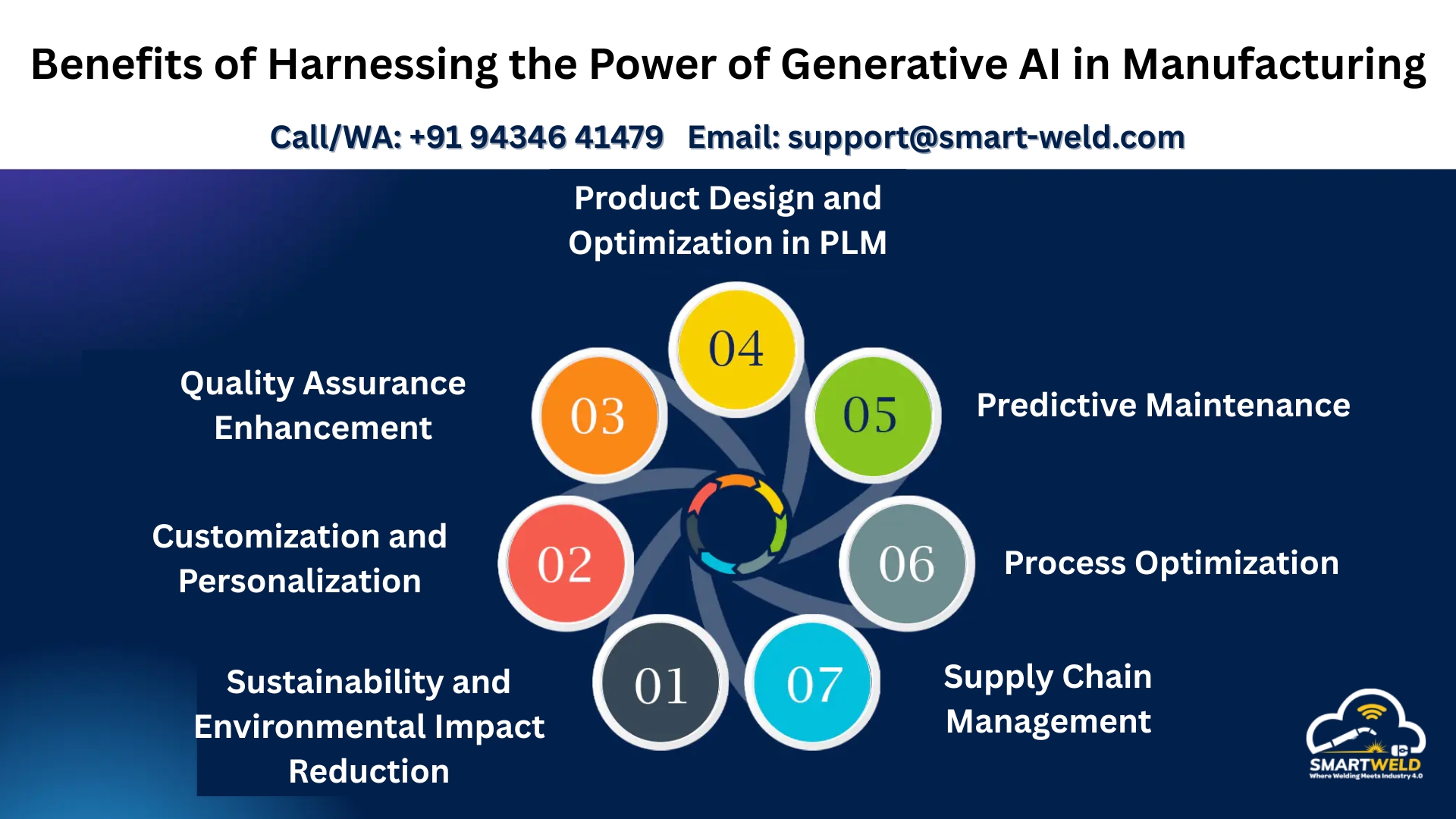Introduction:
The manufacturing industry is undergoing a transformation with the introduction of the concepts of Industry 4.0, a new era marked by the integration of digital technologies IT and OT, into the manufacturing process. One of the key technologies helping this transformation is Generative Artificial Intelligence (Generative AI), which is playing a crucial role in enhancing efficiency, productivity, and innovation in manufacturing.
Industry 4.0 Elements:
- Cloud Computing: Cloud computing is the backbone of Industry 4.0, providing scalable and on-demand access to computing resources. Generative AI leverages cloud infrastructure to process vast amounts of data and perform complex computations, enabling manufacturers to handle large datasets and execute resource-intensive tasks with ease and on a real time basis.
- Data Lake: A data lake is a centralized repository that allows manufacturers to store and manage large volumes of structured and unstructured data. Generative AI relies on data lakes to access diverse datasets, facilitating the training of models on comprehensive information. This results in more accurate and context-aware AI models.
- IoT (Internet of Things): IoT devices are integral to Industry 4.0, connecting physical objects and machinery to the digital realm. Generative AI uses data from IoT sensors to monitor equipment health, predict maintenance needs, and optimize production processes. This real-time data enables manufacturers to make informed decisions and prevent downtime.
- Sensor Technology: Sensors play a crucial role in collecting data from the manufacturing environment. Generative AI utilizes sensor data to create models that can predict equipment failures, identify inefficiencies, and optimize production parameters. This proactive approach to maintenance reduces downtime and enhances overall equipment effectiveness. Soft sensor which is software-based tool that estimates or predicts process variables in a system where direct measurement is challenging, costly, or impractical can be facilitated through Generative AI
- AI/ML (Artificial Intelligence/Machine Learning): Generative AI, a subset of artificial intelligence, employs machine learning techniques to create models capable of generating new, realistic data based on patterns learned from existing datasets. In manufacturing, this technology can be applied to design optimization, process improvement, and even the creation of entirely new product concepts.
- Digital Twin: Digital twins are virtual replicas of physical assets or systems. Generative AI enhances digital twins by continuously updating them with real-time data from sensors and other sources. This dynamic representation enables manufacturers to simulate various scenarios, test different parameters, and optimize processes before implementing changes in the physical environment.
Key Applications of Generative AI in Manufacturing:
- Product Design and Optimization in PLM : Generative AI assists in designing and optimizing products by generating multiple design options based on specified parameters. This not only accelerates the product development process but also results in innovative and efficient designs.
- Predictive Maintenance: By analyzing data from IoT sensors and other sources, generative AI models can predict when equipment is likely to fail. This predictive maintenance approach minimizes unplanned downtime, reduces maintenance costs, and extends the lifespan of machinery.
- Process Optimization: Generative AI models analyze data from various sources to optimize manufacturing processes. This includes adjusting production parameters in real-time, improving energy efficiency, and minimizing waste. The result is increased production efficiency and reduced resource consumption. Power consumption prediction, based on large amount of data available which can easily be accessed through Generative AI , resulting in optimization of cost.
- Supply Chain Management: Generative AI aids in optimizing the supply chain by predicting demand, identifying potential disruptions, and suggesting alternative strategies. This ensures a more responsive and resilient supply chain that can adapt to changing market conditions.
Conclusion:
Generative AI is a game-changer in the manufacturing domain, supporting the new era of efficiency, innovation, and adaptability. Ebiw , by seamlessly integrating Generative AI with Industry 4.0 technologies such as cloud computing, data lakes, IoT, sensor technology, AI/ML, and digital twin, will enable manufacturers to access deep insights, streamline operations, and stay ahead in an increasingly competitive environment. As we continue to witness the evolution of Industry 4.0, the role of generative AI will undoubtedly become more prominent, and we in Ebiw will help shaping the future of manufacturing in the years to come.

